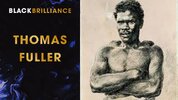So what part is doing the perceiving and WHAT is it perceiving.
Just speculating here of course, but maybe for Shakuntala Devi the answer came as a whole, as a finite result, that's why it was so quick. Meaning, that it came from the right brain. Maybe her antennas were so tuned, when she asked, she had a direct access to the information field.

And when she made a book about various patterns that she saw, it was already the left brain making sense/order out of all this information.
Session Date: August 27th 2022 [..]
(Luc) Iain McGilchrist's work had a big impact on me, so I was wondering: What, if anything, have the left and right brain hemispheres to do with our uplink to the information field and the higher realms?
A: They interpret in tandem the information received by full body sensing.
Q: (L) Left and right brain interpret the information sensed by the full body sensing system...
(Joe) Proteins.
(L) Yeah, all your proteins and your antennas...
(Joe) And your left hemisphere and your right hemisphere fight over it.
(Andromeda) Probably overinterpreting it.
(L) And the uplink to the whole thing is, what, your pituitary?
A: Yes
So, it seems that there is a distinction here between the "full body sensing system", which is possibly a sort of 'array' of all the protein antennas in the body, perhaps analogous to something like the
Square Kilometre Array Observatory, and the pituitary which is the "uplink". Now the word "uplink" implies an
upload of information, so it may be that 'reading' the information field doesn't require use of the pituitary, but an interactive or two-way process does.
Thus, we may reasonably speculate that Shakuntala Devi has some some functional adaptation of either the right hemisphere (in interpreting the answer received as a result of the question being transmitted via a 'normal' human uplink connection) or the pituitary gland (her 'uplink' was able to transmit her questions in a way that would be 'heard', 'understood' or 'accepted' by the information field in a way not usually available to 'normal' mathematicians), OR some combination of both.
It's probably fair to assume that whatever latent genetic coding that was expressed during her development (she showed these talents from a very early age) caused a more specific change rather than a less specific one, so we could possibly begin investigation on the basis of an 'either/or' scenario, but genetic expression is a complex process, so the combination scenario can be deprioritised, but not completely ruled out.
So, if we start from the right hemisphere hypothesis, what might it be about her right hemisphere that allowed her to access the answer to a complex math problem in those situations where many other people were present to hear, comprehend, and presumably also equivalently "uplink" the problem to the information field?
According to the
Human Protein Atlas:
Human Protein Atlas said:
For the regional classification the brain is divided into 13 anatomically defined regions, color coded in Figure 1. The transcriptome analysis shows that 82% (n=
16465) of all human proteins (n=
20090) are expressed in the brain (based on 13 brain regions, spinal cord and corpus callosum).
If the protein composition of the brain is approximately 82% similar to the body in all sampled data, then we can reasonably assume that the participants in attendance had "full body sensing systems" that were to a large degree similar. Thus, we can tentatively answer the initial question, "Were only some members of the audience able to receive the answer (or only Shakuntala), or was the answer
received by all, but only Shakuntala was able to
interpret the response?" affirmative to the latter. Of course ~20% of the known protein-coding genome gives room for a colossal amount of individual genetic variability in brain protein expression, but if we start off trying to find the "ballpark", then we can at least narrow it down from there.
If we use the "FM radio analogy", does this mean that Shakuntala's right hemisphere was able to demodulate the 'answer signal' in a way that the other participants couldn't?
So my next question would be, what structure
specifically in the right hemisphere accepts or/and coordinates neurological input from the rest of the body? I might be able answer this question once I've finished reading Iain McGilchrist's "
The Master and His Emissary", but I'm going to leave it here for now. If anyone else wants knows and wants to jump in, please be my guest, assuming that what I've written actually makes some sort of sense.


 And when she made a book about various patterns that she saw, it was already the left brain making sense/order out of all this information.
And when she made a book about various patterns that she saw, it was already the left brain making sense/order out of all this information.

